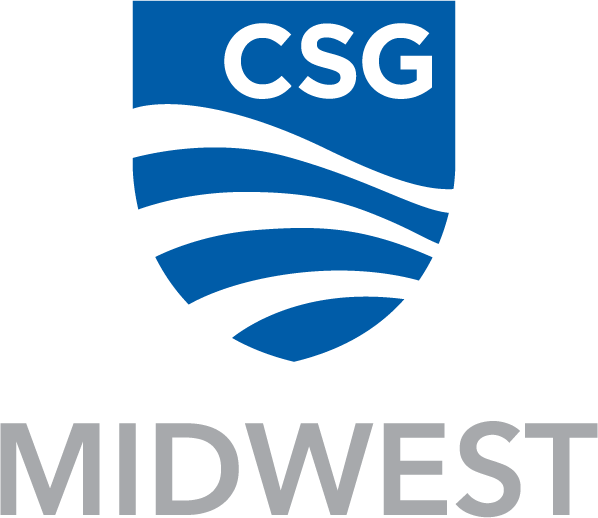Remarks from GLLC Director at Great Lakes Commission Virtual Meeting (11/19/20)
Thank you, Chair Jackson. It’s my pleasure to give this first report from the GLLC as an official observer of the Great Lakes Commission. Thank you very much for approving Sen. Charbonneau’s request. I’d like to relay his reaction:
I am extremely pleased that the GLC has granted the GLLC “observer” status. I am a firm believer in partnerships and working together on significant issues that affect the 40 million US and Canadian citizens who rely on the Great Lakes in so many ways. I look forward to a great future as a result of this move.
Sen. Ed Charbonneau (Indiana), GLLC Chair
This “great future” that Sen. Charbonneau mentions will build on the strong working relationship between the Caucus and the GLC that has developed over the past two years under his leadership. Our two organizations partnered on the Caucus’s inaugural Birkholz Institute in 2019, which focused on nutrient pollution. Nicole Zacharda has been an amazing resource to the institute and to the GLLC’s Task Force on Nutrient Management, which organized following the institute. We’re looking forward to continuing to partner on this activity, and I’m hoping that our interaction will help identify some potentially interested parties for the Conservation Kick initiative.
The Caucus also appreciates the opportunity to serve on the Commission’s Standing Committee on Climate Resilience. I’d like to commend Eric Brown for doing such a great job leading a fairly large and very diverse group to produce what will be an important plan for the commission and also — because the commission is a convener, a collaboration leader — I believe it will be an important plan to guide the actions of other groups like the Caucus. Yesterday, Rep. Robyn Gabel (Illinois), GLLC Vice Chair and Chair-Elect, mentioned that the Caucus had decided to focus the 2021 Birkholz Institute on helping coastal communities to become climate resilient. I hope as we collaborate on the Birkholz Institute, the Caucus will be able to use the plan to zero in on some specific policy issues that require legislative action to advance. This is a great example of how our two organizations can be resources to one another.
Dr. Ralph Grundel made an excellent point earlier today about the U.S. Geological Survey translating data into “actionable intelligence.” Educating legislators about the Great Lakes is major part of the GLLC’s mission. And that’s because, to take coordinated regional action to benefit the Great Lakes, state and provincial legislators must first understand the enormous value the lakes bring to the region’s ecology and economy, as well as the threats that could potentially harm the lakes. We’re partnering with the American Association for the Advancement of Science — specifically, the Center for Evidence in Public Issues, or EPI Center — to put together a virtual workshop for legislators on PFAS contamination of groundwater.
It’s difficult to find subject-matter experts who are able to distill their knowledge — their “terabytes of data” — into nuggets of actionable intelligence that is salient to lawmakers. We’re hoping our collaboration with the AAAS will be just the first of many opportunities to help bridge the gap between science and policy. The Caucus would welcome the opportunity to partner with other agencies and organizations that have this same “grand challenge” that Dr. Grundel described.
I want to give a shoutout to Blue Accounting. Caucus members have high hopes for the platform. We’ve talked about using it to track the GLLC’s progress in implementing policy recommendations — e.g., on nutrient management and lead in drinking water. Also, as Nicole Zacharda and others have heard me say, whenever legislators develop legislation on any topic, a first step is always to look at what other states and provinces are doing. So it would be very helpful for Blue Accounting to present information on the actions the individual states and provinces are taking and the funding they are investing in solving specific problems. This information on policies, programs, and funding from all 10 jurisdictions is useful for identifying areas in common as well as innovative, effective approaches that might be transferable to other jurisdictions. It’s also helpful for identifying areas where our differences could be counterproductive to the shared goal of ensuring that the Great Lakes and St. Lawrence River continue to provide a plentiful source of clean, affordable water to the region’s residents, businesses, and industries.
Finally, as Rep. Gabel observed yesterday, she will become GLLC chair in January. The new leadership team will have some overlap with the Commission: Commissioner Jennifer Schultz, State Representative from Minnesota, will become vice chair and Commissioner Carrie Ruud, Senator from Minnesota, will represent the state on the Caucus’s Executive Committee. And, of course, Minnesota Commissioner Sen. Ann Rest will continue to be an important and valued member of the Executive Committee as a past chair of the Caucus.
Congratulations to the commission, to Erika Jensen, and to the rest of the staff for hosting an excellent virtual meeting. I and the leaders of the Caucus look forward to interacting with everyone in person someday soon. Thank you.

